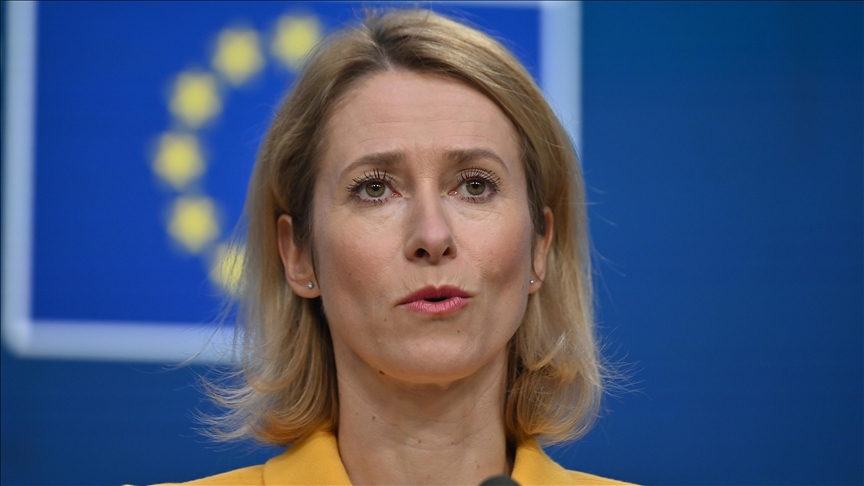EU took 'pragmatic' step by suspending key Syria sanctions, says foreign policy chief
'This is not full normalization, but rather pragmatic approach to support Syrians and ensure country’s economic collapse does not further destabilize region,' says Kaja Kallas

ISTANBUL
The EU's foreign policy chief Kaja Kallas said on Monday that the decision to suspend key sanctions reflects a step-by-step approach aimed at easing the economic strain on the Syrian population while maintaining pressure on the country’s leadership for political reforms.
"This is not a full normalization, but rather a pragmatic approach to support Syrians and ensure the country’s economic collapse does not further destabilize the region," Kallas said at a press conference following the Foreign Affairs Council meeting in Brussels.
The decision includes removing the Syrian Central Bank and other financial institutions from the asset freeze list and allowing international energy and transportation transactions.
"This is a step-by-step approach, and if Syria's new rulers backtrack on their commitments, the lifting can be reversed," she said.
She also emphasized hopes for Syrian refugees to return and take part in rebuilding their country.
When asked about guarantees for European companies looking to operate in Syria, Kallas acknowledged challenges, noting that the banking sector remains "very complicated" due to existing US restrictions.
Bad deal for Ukraine means a bad deal for Europe, US
She stressed the need to bolster Ukraine’s defense capabilities, reiterating that "a bad deal for Ukraine is a bad deal for Europe, but it’s also a bad deal for America."
Kallas insisted that any negotiations regarding Ukraine’s future must involve both Kyiv and its European allies.
She also reaffirmed the bloc's commitment to Ukraine amid ongoing security concerns.
"It’s clear that the statements coming from the United States make us all worried," she said, adding that she will travel to Washington to meet with US officials, including Secretary of State Marco Rubio.
“We hope the transatlantic alliance works because it has worked both ways. So far, we don’t have any indication that it wouldn’t, but of course, it’s going to change,” she noted.
"NATO membership is the strongest security guarantee and actually also the cheapest one," she stated.
She also highlighted that European leaders expect to finalize long-term security commitments for Ukraine at the extraordinary European Council summit on March 6.
Anadolu Agency website contains only a portion of the news stories offered to subscribers in the AA News Broadcasting System (HAS), and in summarized form. Please contact us for subscription options.







